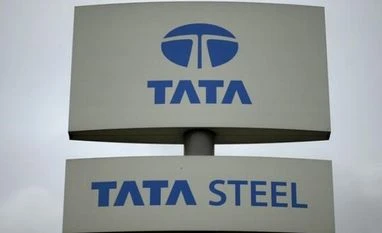So, it was no surprise when the company sold 38.5 million shares of Tata Motors at Rs 324.60 each to institutional investors on September 18. The same day, it sold an additional 37.9 mn shares to parent Tata Sons for Rs 330 each. The transactions together brought Rs 2,500 crore to the company.
However, a closer look at Tata Steel’s holdings in Tata Motors reveals it also bought 8.34 mn shares at Rs 448 each for Rs 374 crore by subscribing to the automobile company’s rights issue. These shares were allotted to the company in May, and the recent sales have been at prices lower than what it paid in the rights issue.
The company chose not to respond to detailed queries sent on Friday on the purchase and sale of Tata Motors shares in the past six months.
“The debt levels in Tata Steel have been high for a while, including when they subscribed to the rights issue,” says Amit Tandon, managing director, Institutional Investor Advisory Services.
Tata Steel had acquired Anglo-Dutch steel firm Corus for $12.1 billion (Rs 53,460 crore) in 2007, raising the company's consolidated net debt to Rs 49,392 crore by March 2008 from Rs 14,037 crore a year earlier. Besides, it increased capacity at the century-old Jamshedpur plant to 10 million tonnes by 2012-13 from four mt in 2006, and is building a six mt unit at Kalinganagar (Jajpur) in Odisha for Rs 38,500 crore. Consequently, Tata Steel's consolidated net debt went up to Rs 71,951 crore in March.
“Given these high debt levels, Tata Steel Should have renounced its rights shares at the time of the issue, either in favour of Tata Sons or in the market,” he says.
Some of the Tata Group companies have cross-holdings. At the end of December 2014, Tata Steel held 151 mn shares of Tata Motors, amounting to 5.54 per cent stake. This increased to 160 mn shares in May, after the rights issue. With the September sale, it has divested 2.66 per cent stake in Tata Motors and is now left with 2.88 per cent in the company.
Tata Steel also sold 2.18 per cent stake in Titan Company to Tata Sons through a market sale for a net Rs 637 crore in August.
In an investor call that month, Tata Steel's group executive director (finance and corporate), Koushik Chatterjee, said the company in the past five-six years had raised around Rs 15,000 crore through monetisation of strategic, non-core and listed assets.
This has since increased with the Rs 2,500 crore sale in September.
"As a step towards improving its capital structure, the company strives to maximise the use of internal accruals and to monetise its non-core assets regularly to fund capital expenditure," it said in its annual report for the past financial year, which goes against any rationale for simultaneously buying shares.
J N Gupta, managing director at proxy advisory firm Stakeholders Empowerment Services, says: "The company could have renounced the rights issue in favour of Tata Sons, as the trusts had done."
Adding: "However, we are analysing the transaction post facto. Had they renounced and the share price galloped upward, then we would accuse it of transferring profits to Tata Sons at the cost of Tata Steel
)